20-Second Key Takeaways
- Hay fever affects millions every spring, causing sneezing, runny nose, and itchy eyes.
- Traditional antihistamines relieve symptoms but often cause drowsiness, gastric issues, and tolerance buildup.
- Reishi mushroom contains triterpenes and beta-glucans that act as natural antihistamines and immune balancers.
- Research shows Reishi reduces pollen-induced nasal symptoms and may lower histamine overreaction.
- For long-term allergy support, choose dual-extracted, lab-tested Reishi supplements with verified beta-glucan content.
Do you need a box of tissues? Hay fever isn’t just a spring nuisance. It’s your immune system waging war against something as harmless as pollen.
If you’re tired of greeting spring with a box of tissues instead of joy, you know the struggle of hay fever all too well. The sneezing fits that don’t stop, the itchy eyes that make it impossible to focus, and the congestion that turns simple breathing into a daily challenge, it’s exhausting.
What makes it worse is the cycle: you turn to antihistamines for relief, only to feel drowsy, foggy, or dependent on them just to get through the day. And while these drugs mask the symptoms, they never really address the root of the problem, why your immune system is overreacting in the first place.
But what if there was another way? Imagine managing your allergies not by suppressing your body’s defenses, but by supporting them naturally.
TL;DR: Reishi mushrooms may offer a natural, science-backed option for managing hay fever and other allergic reactions. By balancing histamine, lowering inflammation, and supporting immunity, Reishi for allergies could become one of the most effective hay fever natural remedies.
Table of Contents
Why It Matters
At its core, hay fever allergy is the body’s overreaction to the world around it. Reishi represents a way to calm that reaction, not just silence the symptoms. For anyone seeking hay fever remedies natural or mushrooms for allergy relief, it’s a powerful reminder that nature often provides answers where synthetic drugs fall short.
An allergic reaction is when your body overreacts to something that is otherwise harmless. While the intention is to protect you, it can be at times annoying (sniffles) or even fatal (Anaphylactic shock).
Hay Fever, the Spring Allergy
One of the most common allergies is allergic rhinitis, or more commonly referred to as hay fever.
Hay fever, also known as allergic rhinitis, is the immune system’s overreaction to pollen and other airborne allergens. Instead of ignoring harmless particles, the body releases histamine, a chemical that causes symptoms such as:
- Persistent sneezing and coughing
- Runny or blocked nose
- Itchy throat, mouth, or eyes
- Headaches and fatigue
- Shortness of breath (especially with asthma)
For many, these symptoms recur seasonally and disrupt daily life. While natural hay fever treatment methods exist, most people rely on conventional antihistamines, fast-acting but often short-sighted.
Enter... Reishi Mushrooms
Did you know Hay fever can last for weeks or months, unlike a cold, which usually goes away after 1 to 2 weeks?
What is the Reishi Mushroom?
Known as the “mushroom of immortality”, Reishi mushroom (Ganoderma lucidum) has been used in Eastern medicine for centuries. Today, modern research is exploring its potential as one of the most promising mushrooms for hay fever and other allergic conditions.

The mushroom has been cited to have potential benefits for overall immunity, cancer prevention, and fatigue & depression. Reishi has also been investigated for its positive effects on allergies, specifically hay fever.
Reishi contains:
- Triterpenes: compounds that mimic natural steroids, easing allergic responses.
- Beta-glucans: fibers that modulate immunity and prevent overreaction.
- Polysaccharides: antioxidants that protect against inflammation.
💡 Highlight: Unlike standard antihistamines, Reishi histamine regulation works by addressing the root cause of allergic overreaction rather than just masking symptoms.
Mushrooms for Allergy Relief: How Reishi Works
The fungus contains several active compounds credited for its healing properties, including triterpenoids, peptidoglycans, and Beta D Glucans. These compounds possess anti-histamine and anti-inflammatory properties, the two ways common allergy drugs work.
In a 2012 study involving “hay fever” guinea pigs, scientists discovered that reishi treatment reduced symptoms of pollen-induced nasal blockage. Moreover, nasal hyper-responsiveness, or when you sneeze too frequently or when your runny nose isn’t letting up, was greatly reduced after using Reishi. [1]
In a review published in the journal of Recent Patents on Inflammation & Allergy Drug Discovery, scientists were quoted saying Reishi’s “unique array of compounds could play a major role in the treatment of histamine-mediated allergic responses.” [2]
They also mentioned how Reishi is a safer approach for allergic treatment, especially when traditional treatments also come with side effects.
The Problem with Traditional Allergy Treatments
Reishi is being considered a potentially safer alternative for allergy treatments, but what exactly can make conventional treatments unsafe?
Scientists reviewing Reishi’s safety profile concluded that the mushroom exhibits similar anti-allergic properties to common allergy medications, without the risks of short and long-term side effects.
In a 2014 review, researchers were quoted saying:
“Topical and systemic anti-inflammatory drugs have serious drawbacks such as they can suppress pituitary-adrenal function, dangerously unbalance fluids/electrolytes and cause undesirable changes in skin texture and the salicylic acid-derived prostaglandin inhibitors can result in severe gastric irritation.”
Common allergy medications and side effects
Allergy medications, also known as anti-histamines, are prescribed to patients who need immediate relief from allergy symptoms. They’re divided into two groups:
Regular Antihistamines
- Chlorphenamine (Piriton)
- Cinnarizine
- Diphenhydramine
- Hydroxyzine
- Promethazine
Non-Drowsy Antihistamines
- Acrivastine
- Cetirizine
- Fexofenadine
- Loratadine
Due to their synthetic and concentrated nature, antihistamines provide immediate relief but can also lead to side effects such as:
- Drowsiness
- Reduced coordination or reaction time
- Dry mouth
- Blurry vision
- Difficulty urinating
- Gastric problems
- Headaches
- Confusion
- Moodiness
More than the side effects, traditional allergy treatments focus too heavily on treating the symptoms, but not the root cause of the allergic reaction. The modern approach to allergy drugs does not consider the body’s natural defences nor the causative factors involved in an allergic reaction.
The result? You end up needing to take antihistamines for the rest of your life, with the risk of building tolerance leading to an increase in your effective dosage.
Reishi could be Better in the Long-Term
The unique spores found in reishi possess anti-inflammatory and anti-histamine properties, which address the processes that lead to allergies, such as those that release histamine. The mushroom also contains Beta D Glucans, which can balance and reduce immune overreaction and lower histamine levels and overall inflammation.
What should I look out for in a Reishi supplement?
Below are examples of what you should look out for when choosing a Reishi supplements:
Triterpenes
Triterpenes are chemical compounds produced by animals, plants, and fungi. Studies have shown triterpenes can help relieve allergy symptoms. [3] They also possess potent antioxidant properties that benefit insulin sensitivity, which then helps with blood sugar management.
Reishi is the only source of triterpenes called ganoderic acid, which have a molecular structure similar to steroid hormones. Because anti-histamines are mostly steroid-like in structure, this explains how ganoderic acid can help relieve allergy symptoms.
Beta D Glucans
Beta D Glucans are soluble fibres found mostly in the cell walls of bacteria, yeasts, some plants, and mushrooms. They have been shown to have potential benefits for cardiovascular disease and cholesterol absorption. Their biggest benefit, however, is how they can stimulate the immune system to react to infections faster.
Tests for Purity & Safety Profile
You want a reishi supplement that’s potent and free from pesticides. High purity extracts mean more of the active compounds you want, especially if you’re after the possible allergy benefits.Always ensure that you are able to review the lab tests to confirm the mushrooms extraction method, active ingredients and purity. See our Reishi product page for the lab test.
Extraction method
The active compounds are both alcohol-soluble and water-soluble. To get full-spectrum support, a dual extract is best.
Here is a comprehensive checklist for choosing a quality mushroom supplement.
Dosage Recommendation
Typical Reishi extract dosing ranges between 1g and 3g daily, depending on severity and individual response. For Allergy Support, many start at 1g daily and adjust gradually.
Always follow product guidelines and consult with a healthcare professional.
Choosing the Right Mushroom Supplement
Quality matters with mushrooms.
✅ Look for extracts made from the fruiting body (not just mycelium)
✅ Verified beta-glucan content and third-party lab testing
✅ Avoid products with fillers or artificial additives
At Antioxi, we prioritize organic, lab-tested extracts to deliver consistent results.
👉Book a Free Consultation with Us.👈 Our team can help you determine the best approach for your needs.
Side Effects and Safety
If you have a mushroom allergy, you should not use these mushroom extracts. Caution is advised if using mushrooms along with blood thinning medication.
References
1. Ryu SY, Oak MH, Yoon SK, Cho DI, Yoo GS, Kim TS, Kim KM. Anti-allergic and anti-inflammatory triterpenes from the herb of Prunella vulgaris. Planta Med. 2000 May;66(4):358-60. doi: 10.1055/s-2000-8531. PMID: 10865455.
2. Bhardwaj N, Katyal P, Sharma AK. Suppression of inflammatory and allergic responses by pharmacologically potent fungus Ganoderma lucidum. Recent Pat Inflamm Allergy Drug Discov. 2014;8(2):104-17. doi: 10.2174/1872213x08666140619110657. PMID: 24948193.
3. Mizutani N, Nabe T, Shimazu M, Yoshino S, Kohno S. Effect of Ganoderma lucidum on pollen-induced biphasic nasal blockage in a guinea pig model of allergic rhinitis. Phytother Res. 2012 Mar;26(3):325-32. doi: 10.1002/ptr.3557. Epub 2011 Jun 23. PMID: 21698671.
Continue Exploring
Dive deeper into mushroom supplements for menopause wisdom with our expert blogs and FAQs, and shop Antioxi’s premium blends and extracts crafted for maximum safety & potency.

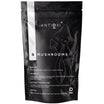
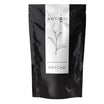
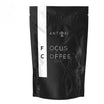
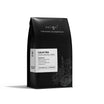
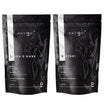
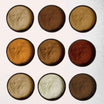


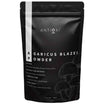
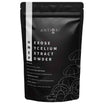
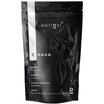
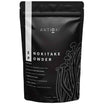
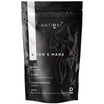
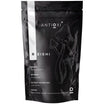
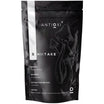
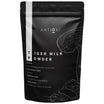
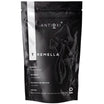
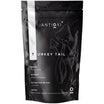


Leave a comment
All comments are moderated before being published.
This site is protected by hCaptcha and the hCaptcha Privacy Policy and Terms of Service apply.